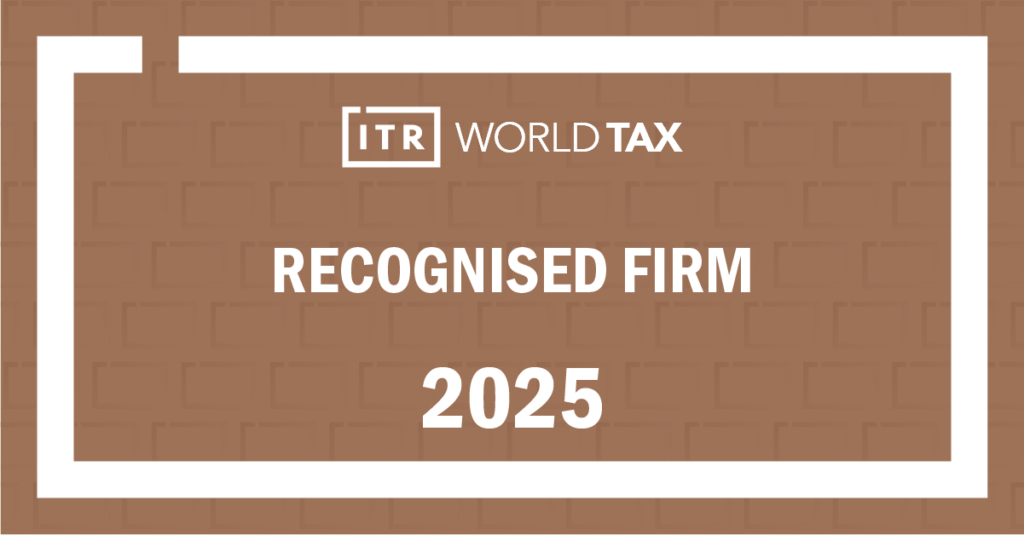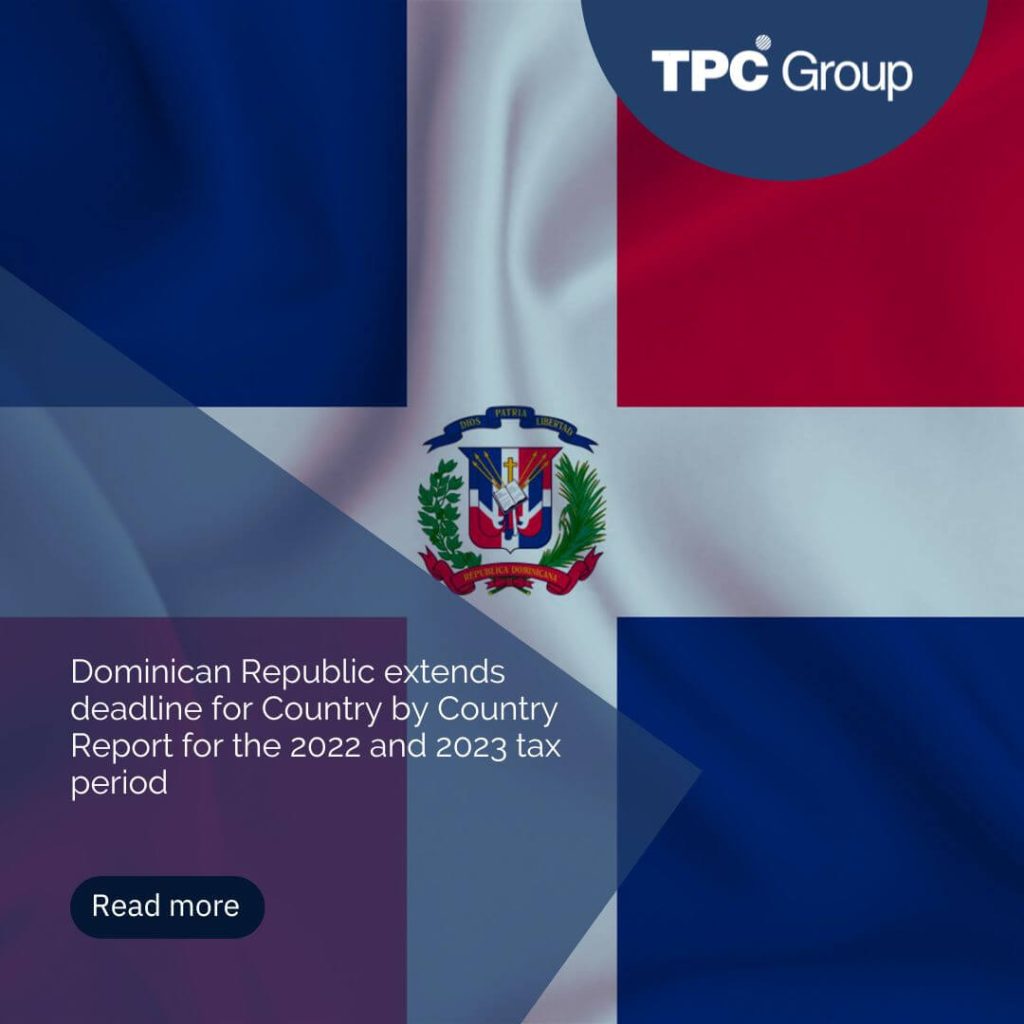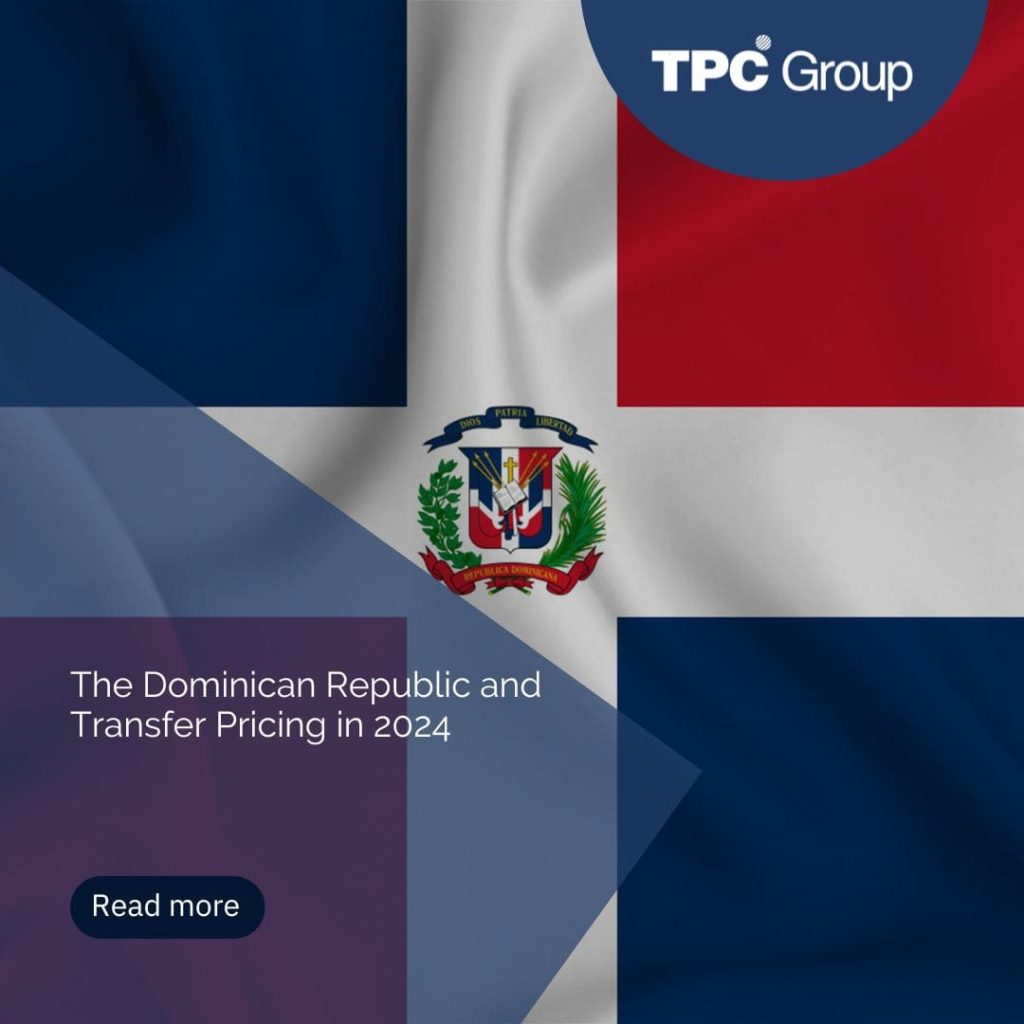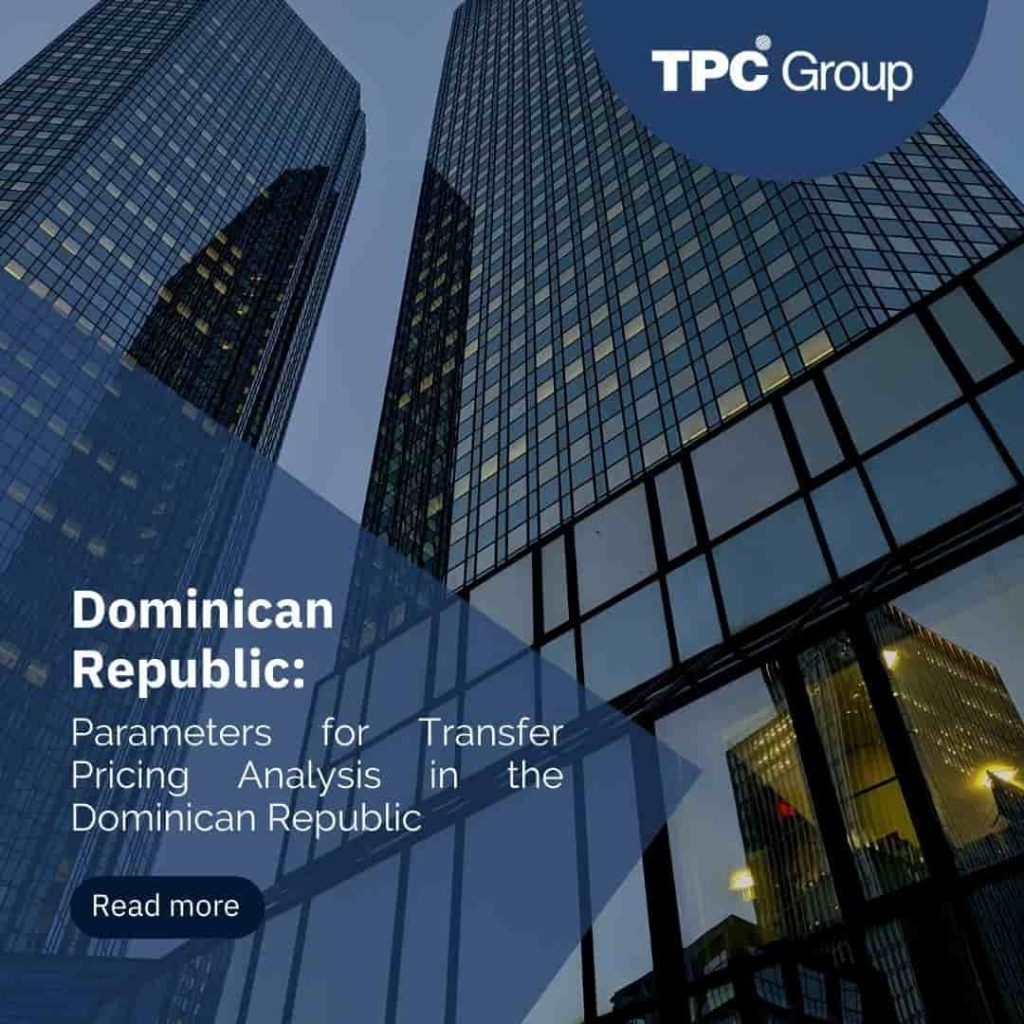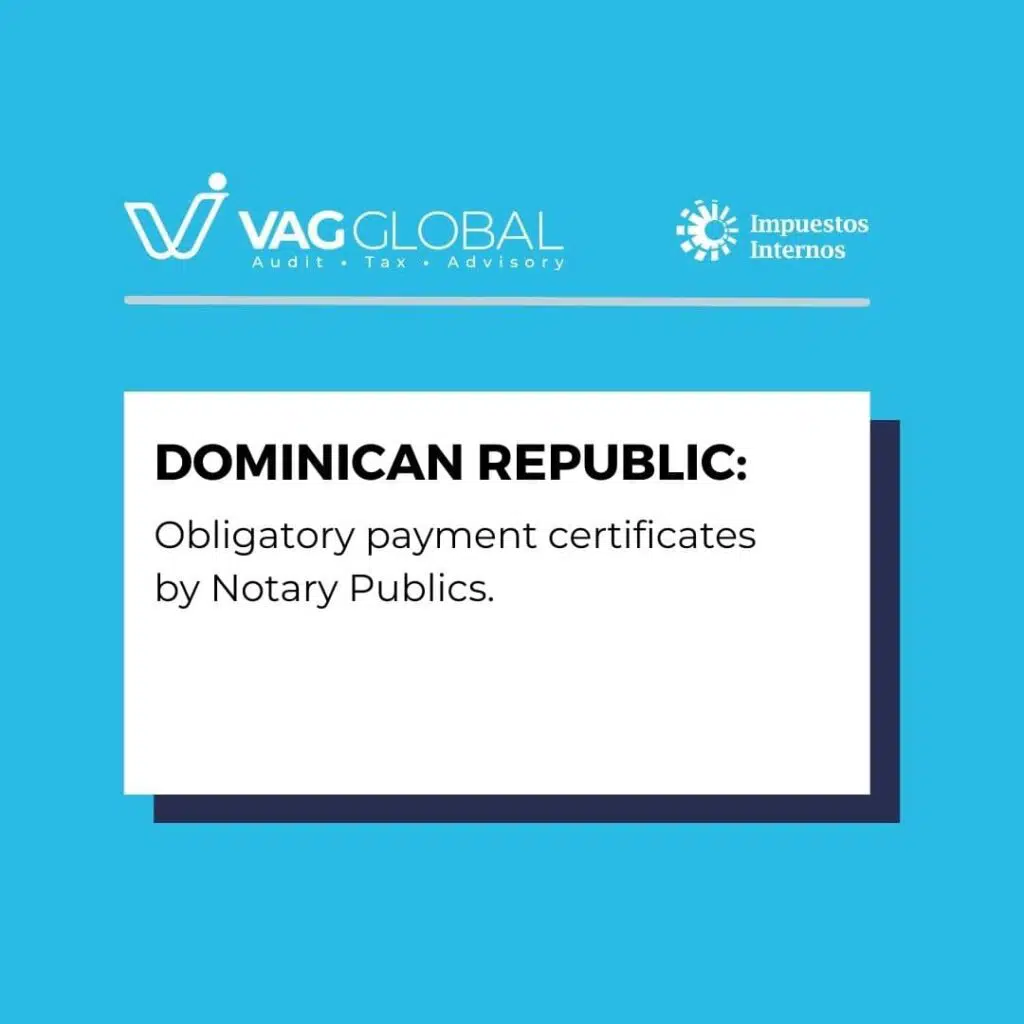Concept and Regulation
The Transfer Pricing rules in the Dominican Republic are regulated in the Tax Code of such country and its regulations. This article briefly addresses the legislation on this matter, such as the application scope of these rules, methods, and formal obligations, such as an informative affidavit and possible non-compliance penalties.
In the Dominican Republic, the regulatory framework is quoted in Articles 281, 281 bis, 281 ter, and 281 quater of the Tax Code, as amended by Law No. 253-12.
Likewise, the Dominican legislation on the matter has Regulation 78-14, the Transfer Pricing Regulation, published in 2014, which has been recently amended in April 2021 through Decree No. 256-21.
This decree reformed the regulations in four aspects such as the comparability analysis, the valuation methodology, the existence of the international intermediary, and formal obligations in this area.
Arm’s Length Principle: Definition
This principle governs Transfer Pricing, which states that the prices or values agreed among related parties should be under market value, i.e., as those of independent parties.
The Dominican Republic regulates this principle through Article 281 of the Dominican Tax Code.
It states that the transactions carried out by a resident in the Dominican Republic with its related parties must be agreed upon according to the prices stipulated among independent parties in similar situations.
Application Scope of Transfer Pricing in the Dominican Republic
The market value rules in the Dominican Republic shall be to resident taxpayers in the country, applied according to Article 1 of Regulation 78-14, performing transactions with:
- Non-resident related parties.
- Resident related parties.
- Individuals, legal entities, or entities incorporated in countries or territories with low or no taxation or preferential regimes (tax havens).
Definition of Related Parties in the Dominican Republic
According to Article 2 of the Regulations, when two or more parties are related to a taxpayer resident in such country and any of the following situations apply:
- One of the parties directly or indirectly participates in the management, control, or capital of another. It is understood as such when this person has the power to influence or determine the key decisions of the other person or entity.
- Both parties own the same natural or legal persons who directly or indirectly participate in the management, control, or capital of these.
- “Permanent establishments abroad.”
- A permanent establishment in the country has a parent company resident abroad regarding another permanent establishment thereof or an individual, legal entity, or entity related thereto.
- An individual, legal entity, or entity resident has exclusivity as agent, distributor, or concessionaire of another for the purchase and sale of services, goods, or rights.
- An individual or legal entity transfers 50% or more of the production to another person.
- An entity takes charge of the expenses of another for the exploitation and income generation or the losses of another regarding market risks, production or investment risks, and financial risks.
Likewise, related parties are those domiciled, located, or incorporated in tax havens, according to paragraph I of Article 281 of the Tax Code.
Transfer Pricing Methods in the Dominican Republic
In order to determine whether the prices agreed among related parties comply with the Arm’s Length Principle, five valuation methods have been established. According to paragraph VII of Article 26 of Law No. 253-12, these are the following:
- Comparable Uncontrolled Price Method
- Resale Price Method
- Cost Plus Method
- Profit Split Method
- Transactional Net Margin Method
It should be noted that the selection of any of these methods should consider that it should be the most appropriate to reflect the economic reality of the transaction, according to Article 6 of Regulation 78-14. Likewise, paragraph VIII of Law No. 253-12 states that only the last two methods will apply to complex transactions or lack of information, and one of the first three methods cannot adequately apply.
Comparability Analysis in the Dominican Republic
According to paragraph VI of Article 281 of Law No. 253-12, in order to analyze whether two transactions are similar ones performed to third ones, the following factors shall be considered:
- The characteristics of the object of the transaction.
- The functions performed, the assets, and the risks in the transactions.
- Contractual terms.
- The economic or market circumstances that affected the transaction.
- Business strategies.
For analysis purposes, Decree 256-21 indicates in Article 1 that the taxpayer must consider the following:
- Identify commercial or financial relationships among related parties, as well as the economically relevant conditions, considering those with the purpose the related party transaction is precisely delimited.
- Compare the economically relevant conditions or circumstances within the related party transactions and those with the possibility of being identified among those carried out by comparable independent parties.
- Contribute a local market study, if necessary, to establish the amount regarding the pricing in similar situations among independent parties for the analysis and publicly available information.
Regarding the delimitation of the actual related party transaction, establishing the economically relevant characteristics of the transaction will be necessary. Therefore, the economic context of the sector in which the company operates and the factors that may affect any company in this sector must be known.
Additionally, when the economically relevant characteristics of the transaction differ from those established in the written contracts and documentation provided by the taxpayer, the precise delimitation of the real transaction must be based on the behavior of the parties, according to Article 2 of the Tax Code.
Transfer Pricing Statement and Documentation in the Dominican Republic
According to Decree No. 256-21, taxpayers performing transactions among related parties or with residents in tax havens will have the following requirements for information and documentation of their transactions:
Information Transfer Pricing Statement
Taxpayers covered by the Application Scope of the Transfer Pricing rules must file an Information Statement of Related Party Transactions or ISRPT with the DGII (Dirección General de Impuestos Internos – General Directorate of Internal Revenue).
The content of such a statement must specifically contain the taxpayer identification, information on the related party, such as tax registration and domicile, cases of relationship, details of related party transactions, and the valuation method of the latter.
This statement must be filed annually within 180 days after the closing date. Conversely, due to the amendment to the regulation, it will be filed when the Income Tax Affidavit is being prepared, thus unifying both statements to be applied as of the fiscal year 2022.
Additionally, along with the referred amendment, all those taxpayers with which any of the cases of relationships of Article 2 of the Regulation are verified will also be subject to ISRPT, regardless of related party transactions during the period.
Local Report or Technical Transfer Pricing Study
Those taxpayers subject to the Transfer Pricing regime must have a study or report indicating the valuation process of the prices agreed upon among related parties until 2020, according to paragraph IV of Article 18 of the Regulation.
Regarding the preparation term of this report, the regulation indicated that it must be ready upon filing the Information Statement only if the DGII requires it. Likewise, according to paragraph V of Article 18 of the Regulation, the following taxpayers are exempted from elaborating and filing such a study:
- Those whose related party transactions in the fiscal year under analysis do not exceed in aggregate the sum of RD$10,000,000.00, adjusted annually for inflation, and who do not carry out transactions with residents in tax havens or preferential regimes.
- Those who carry out transactions with related parties resident in the country, for the part carried out exclusively with these parties, as long as the prices agreed upon by these are not lower taxation.
Thus, along with the recent amendment of Decree No. 256-21 to the above paragraph, taxpayers subject to this regime, as of the fiscal year 2021, must file a Local Report or Transfer Pricing Study within 180 days after the ISPRT filing, explaining the valuation process or evaluation of the prices agreed among related parties and containing information of the local entity, such transactions, and financial information. Conversely, according to paragraph VII of Article 4 of Decree No. 256-21, the following are also exempted:
- Those whose related party transactions in the fiscal year under analysis do not exceed a total amount of RD$12,193,981.70, adjusted annually for inflation, and do not perform transactions with residents in States or Territories with preferential tax regimes of low or no taxation, non-cooperating jurisdictions, or tax havens.
- Those who perform transactions with related parties residing in the country, for the part carried out exclusively with these, as long as the prices agreed upon by these are not lower taxation.
Master File
This report has been incorporated in the Dominican Republic legislation since the fiscal year 2021 for those taxpayers who, regarding the related parties, are in the case of relationship according to numeral 1 of Article 2 of the Regulation and belong to a Multinational Group.
This report shall contain the organizational structure of the group, a description of the business(es) of the corporate group, intangibles, its financial activities, and its financial positions, being filed within 180 days after the filing date of the ISPRT.
It should be noted that taxpayers who comply with any of the above exclusion requirements will be exempt from the Local Report.
Country by Country Report
According to Decree No. 256-21, the following shall be subject to filing the Country-by-Country Report or CbC Report:
- Taxpayer members of a Multinational Group who have obtained consolidated income for accounting purposes equal to or higher than the threshold to be indicated by the DGII are the Ultimate Parent Company and reside for tax purposes in the Dominican Republic. This report for fiscal year 2022 must be filed in the fiscal year 2023.
- Likewise, it may be filed by any member of a Multinational Group residing for tax purposes in the Dominican Republic as long as this report is not regulated in the country of residence of the Ultimate Parent Company.
Supporting Documentation
The taxpayer must have supporting information regarding related party transactions, such as invoices, contracts, accounting movements, and Transfer Pricing policies, among others, according to Decree No. 256-21.
Transfer Pricing Non-Compliance Penalties in the Dominican Republic
According to Article 281 ter of the mentioned Tax Code, in case of non-compliance with the obligations, late filing after the established deadline or erroneous data constitutes a violation of the formal duties, being fined according to Article 257 of the mentioned Code.
The above article establishes that failure to comply with formal duties entails a fine of 5 to 30 minimum salaries.
In case of failure of information filing to the Tax Administration, in addition to the established fine above, a sanction of 0.25% of the income declared in the previous tax period may be applied.
If a Transfer Pricing adjustment is confirmed, the fine established by Article 250 of the aforementioned Code for tax evasion will be applied, corresponding to twice the amount of the omitted tax.

